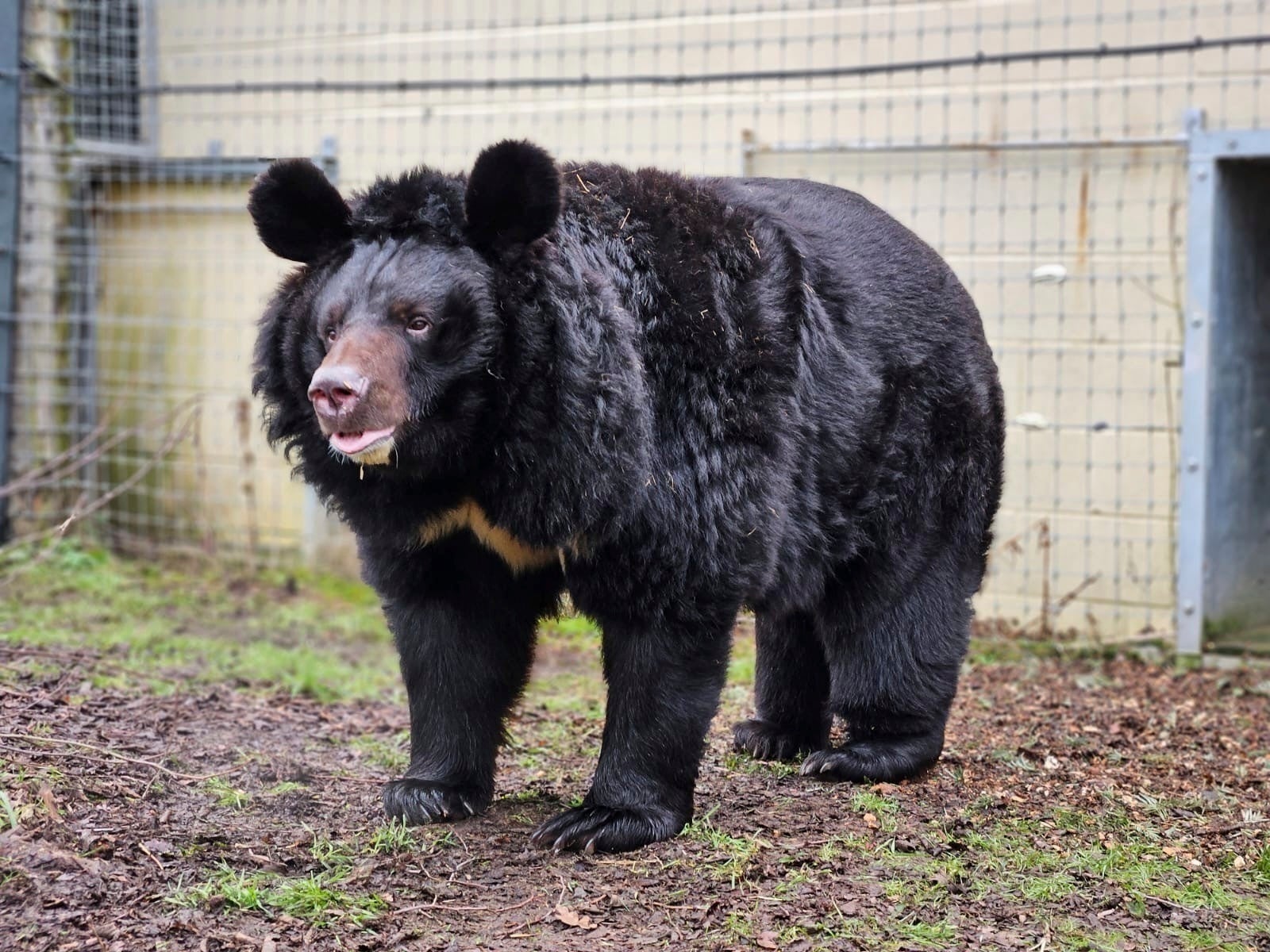A refugee bear from a bombed-out Ukraine zoo finds a new home in Scotland
A bear rescued from a bombed-out zoo in Ukraine has arrived at his new home in Scotland

An unlikely refugee from the war in Ukraine — a black bear — arrived at his new home in Scotland on Friday and quickly took to a meal of cucumbers and watermelon.
The 12-year-old Yampil was named for the village in the Donetsk region where he was found in a bombed-out zoo by Ukrainian troops in 2022. He was one of the few animals to survive.
Other animals were killed in the fighting, starved or eaten by Russian soldiers, said Frederik Thoelen, a biologist at the Nature Help Center in Belgium where the bear spent the past seven months.
“The whole village was destroyed, including the local zoo,” Thoelen said. “Yampil was the only bear that was still alive.” The zoo had held four or five.
Brian Curran, owner of Five Sisters Zoo in West Calder, Scotland, said his heart broke when he learned of Yampil's plight. The bear had a concussion from recent shelling.
“He was in terrible condition; five more days and they wouldn’t have been able to save him," Curran said. "We were just so amazed he was still alive and well.”
The bear was skinny but not malnourished when he was found, Thoelen said.
He was evacuated to a zoo in Poland, where he was rehabilitated before being sent to Belgium in June. He now is estimated to weigh a healthy 440 pounds (200 kilograms), Thoelen said.
The nature center in Belgium, which usually treats injured wildlife and returns them to their natural settings, has taken several animals rescued from the war in Ukraine, including a wolf, a caracal cat and four lions, though those animals had not been so close to the devastation.
It was remarkable how calm Yampil was when he arrived in Belgium, Thoelen said.
The bear was trained in the past two weeks to move from his enclosure to the crate that would transport him across Belgium to Calais, France, then across the English Channel on a ferry to Scotland. Pastries from a local bakery were used for good measure to lure him Thursday into the cage, where he was sedated for the journey.
“We want to use the food that he likes most, and for most bears — and for people also — it’s sweet, unhealthy foods,” Thoelen said.
Thoelen had a sense of the bear's weight as he drove the crate to the port.
“Every time when we had a red light or a traffic jam, when the bear moved a little bit, you could feel the van moving also,” he said. “You could feel it was a heavy animal in the back of the car.”
Yampil arrived at the zoo about 15 miles (25 kilometers) west of Edinburgh and immediately made himself at home. He feasted on cukes — said to be his favorite food — and melon, said Adam Welsh, who works at Five Sisters.
The Asiatic or Asian black bear is considered vulnerable to extinction in the wild, where it can be found in central and southern Asia, Russia and Japan. It’s known for the distinctive white crescent patch on its chest that gives it the nickname moon bear. It can live for up to 30 years in zoos.
It's not clear if the bear will go into hibernation. The winter has been warmer than usual but colder days are on the horizon.
The zoo has other bears, but Yampil is unique.
“We’ve had circus bears, for example, that have been rescued, lions rescued from a performance circus as well,” Welsh said. “We’ve had bears rescued from places like roadside restaurants where they’ve been used as kind of roadside attractions and been kept in subpar conditions. But this is the first time that we’ve worked with an animal that’s been rescued from a war zone.”
Bookmark popover
Removed from bookmarks